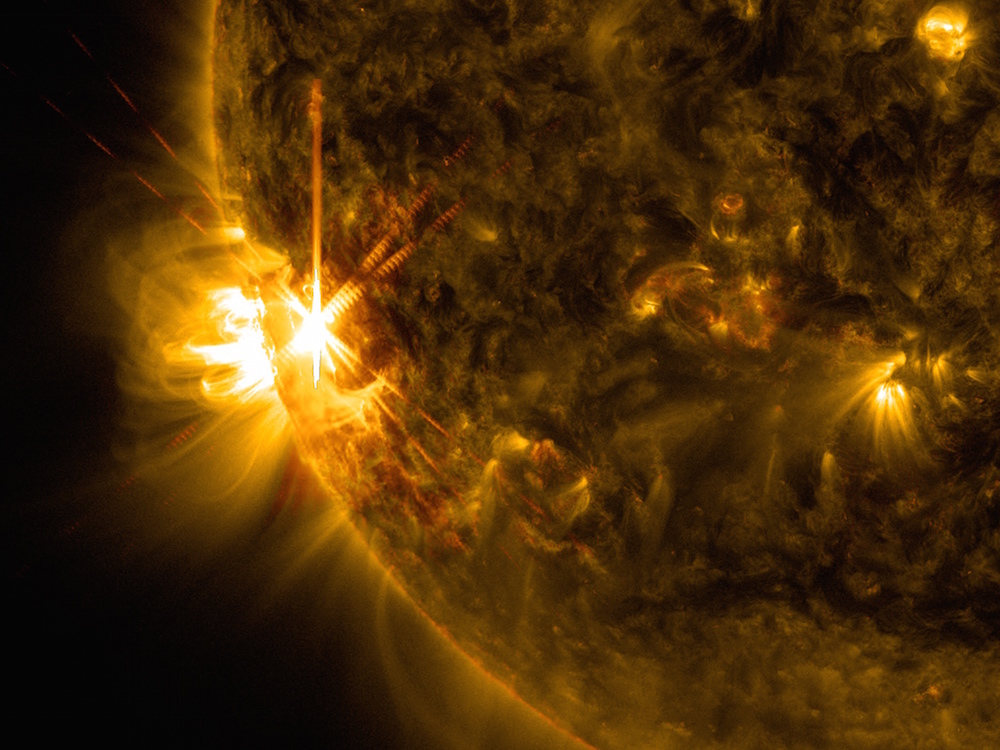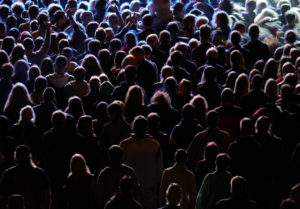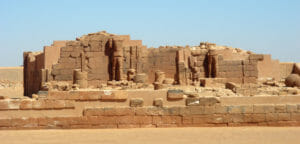Physicist Warns of Earth’s Vulnerability to Solar Flares
Don Lincoln, a senior physicist at Fermilab, says we need a better warning system for potentially catastrophic solar flares. A solar flare, captured by NASA in 2014. (NASA/SDO/Goddard)
A solar flare, captured by NASA in 2014. (NASA/SDO/Goddard)
In addition to hurricanes and earthquakes, earth last week experienced the effects of another dramatic phenomenon: solar flares emitted by the sun, which could have “crippled human technological civilization.”
So says Don Lincoln, a senior physicist at Fermilab—an arm of the U.S. Department of Energy Office of Science—in a piece about the solar flares on CNN.
“A solar flare occurs when magnetic energy in the vicinity of a sunspot is released, resulting in a bright spot on the sun that takes place over a time scale of perhaps 10 minutes—or even less,” he writes. “The flare can shoot out a broad range of electromagnetic energy, from visible light to X-rays to the even more energetic gamma rays. If this emitted energy is aimed at the Earth, it can have a significant impact.”
Lincoln continues:
While the energy emitted in these flares is substantial, the Earth’s atmosphere protects people on its surface from adverse effects, although GPS and communication satellites can be disrupted. Indeed, these flares did temporarily block high-frequency radio communication and degraded performance of the GPS network. …
While solar flares can interfere with satellites, an even more dangerous phenomenon is called a coronal mass ejection (or CME). CMEs often accompany a flare and occur when some of the sun’s highly ionized material is ejected into space. Because a CME consists of matter and not the electromagnetic radiation of a flare, it can take a day or even more to travel from the sun to the Earth. Indeed, last week’s flares were accompanied by a CME, but it didn’t hit the Earth with its full fury.If a CME happens to be aimed directly at Earth, the ionized particles can slam into the magnetic field that surrounds the Earth and distort its shape, a process called a geomagnetic storm. That’s when things can get dangerous. Moving magnetic fields can induce electrical currents on the Earth’s surface and damage equipment.
Independent journalism is under threat and overshadowed by heavily funded mainstream media.
You can help level the playing field. Become a member.
Your tax-deductible contribution keeps us digging beneath the headlines to give you thought-provoking, investigative reporting and analysis that unearths what's really happening- without compromise.
Give today to support our courageous, independent journalists.





You need to be a supporter to comment.
There are currently no responses to this article.
Be the first to respond.